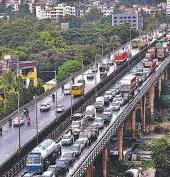- World
- India now 3rd methane emitter in the world: UNEP Report
India now 3rd methane emitter in the world: UNEP Report

Belem, 18th November 2025
India has emerged as a significant contributor to global methane emissions, primarily due to the burning of agricultural stubble, as highlighted by the United Nations Environment Programme (UNEP) report.
This practice has been a significant contributor to exacerbating air pollution nationwide, particularly in Delhi, where toxic particulate matter is prevalent. The UNEP ranks India as the world's third-largest emitter of methane, trailing only China and the United States, with current emissions estimated at around 31 million tonnes (Mt).
The G20 nations, which include India, account for 65 per cent of the world's total emissions, as noted by UNEP experts, with global methane production reaching 360 Mt. The report raises concerns about the rising trend in global methane emissions but also expresses optimism for improvement by 2030.
India, as a leading emitter, faces significant challenges from emissions linked to livestock, including enteric fermentation and manure, as well as from rice cultivation. Notably, emissions from crop residue burning are a growing issue, increasing even as other regions see declines.
According to the report, India is grappling with waste management issues that can further elevate methane emissions. A closer look reveals that methane emissions from waste burning in India surged from 4.5 Mt in 1995 to 7.4 Mt in 2020, a 64 per cent increase.
This contrasts with a 43 per cent rise globally during the same period, from 56 Mt to 80 Mt.
In 2020, India's methane emissions were about 31 Mt, making up 9 per cent of global emissions. The agricultural sector alone contributed 12 per cent of worldwide agricultural methane, marking India as one of the highest contributors globally. Further, rice-related methane emissions are projected to grow by 8 per cent from 2020 to 2030.
Interestingly, the report points out that India has not specified strategies for reducing emissions from its primary source – agriculture, in its Nationally Determined Contributions (NDCs). The country is identified as a major hotspot for crop residue burning, showing an upward trend despite a global decrease.
000
About The Author











